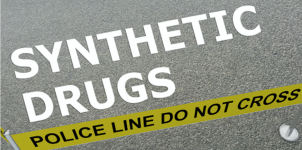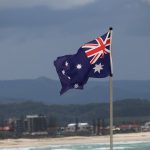The Dangers of a Blanket Ban on Synthetic Drugs

“The global war on drugs has failed,” the Global Commission on Drug Policy declared on June 2 2011.
The panel of world leaders and intellectuals outlined in its report that prohibition has led to increased drug consumption, fostered powerful crime networks and contributed to mass incarceration.
The commission’s findings have had ripple effects around the world. It has also informed the Victorian government inquiry into drug law reform, which is reviewing the effectiveness of the state’s laws relating to illicit and synthetic drugs. The inquiry’s report is scheduled for tabling by March 9 next year.
Over recent years, some of Australia’s top ex-law enforcement officials have spoken out against drug prohibition. Former Victorian police chief Ken Lay has said that the issues surrounding the use of illegal substances are not something you can “arrest your way out of.”
Greater criminalisation
So it seems rather counterintuitive that the Andrews government is proposing a blanket ban on what it has termed “psychoactive substances,” or what are more commonly known as legal synthetic drugs.
However, that’s exactly what the Drugs, Poisons and Controlled Substances Miscellaneous Amendment Bill 2017 will do if it is passed by the upper house of parliament.
The bill will amend the Victorian Drugs, Poisons and Controlled Substances Act 1981. Amongst other things, it will add to the list of “drugs of dependency” and prohibit the production, sale and promotion of psychoactive substances, as well as increasing police powers pertaining to them.
Voices against the bill
A coalition of leading harm reduction organisations – including the Victorian Aids Council, LEAP, Yarra Drug & Health Forum, High Alert, Harm Reduction Victoria, the Victorian Alcohol and Drug Association (VAADA), Rationalist Society of Australia, Students for Sensible Drug Policy and DanceWize – are speaking out against the bill before it’s too late.
Ms Molly O’Reilly, acting executive officer of VAADA, said that despite “other jurisdictions implementing similar policies, use of these substances remains prevalent with users shifting to alternate means of procurement.”
Indeed, the UK introduced a similar law last year under the Psychoactive Substances Act. Since the ban, people have continued to obtain Spice – synthetic cannabis – via the black market. But now, with no quality control, harmful batches of the substance are being sold on the streets.
Manchester’s then crime commissioner Tony Lloyd told the Independent in April it was currently harder for police to stop potentially deadly strains of Spice than before the law was passed, as instead of simply asking shop owners to stop selling these batches, they now have to track down drug dealers and arrest them.
“This may also create additional challenges for frontline services and drug treatment services,” Ms O’Reilly told Sydney Criminal Lawyers®. She warned that these services will need to “manage the increased number of people presenting with symptoms associated with these substances.”
Expansion of police powers
The amendment bill, which was introduced into parliament by Victorian police minister Lisa Neville in March, was passed by the lower house that same month. The move is more of the same from Victorian authorities, who continue to increase law enforcement measures, despite calls for a different approach.
Victoria police have been pushing for an expansion of search powers at music festivals, so officers are able to search patrons without having a reasonable suspicion to do so. And in April, police launched Operation Safenight, which increased sniffer dog use in nightlife precincts.
The High Alert campaign was formed in response to Operation Safenight, which came to an end on July 29. Campaign founder Nevena Spirovska said, “The exorbitant amount of police resources did not justify the outcomes of the four month operation.”
The coalition against the amendment bill argues that enforcing the blanket ban with be a logistical nightmare for police and a further waste of their resources. It will also take its toll on the Victorian court system, as it is impossible to prove the psychoactivity of a substance in a court of law.
Harm reduction is the better approach
The focus on increasing drug law enforcement in Victoria has been in response to a recent spate of drug-related deaths in the state. In January, three people died after a deadly batch of MDMA – that was mixed with the more dangerous drug NBOMe – was sold at Chapel Street nightclubs.
“The important thing to remember, is that particular incident was caused by a drug that came from the black market,” explained Nick Wallis of the Australian Psychedelic Society. He pointed out that the proposed “law would not have changed the outcome of that incident.”
According to Wallis, the continual banning of more substances, only leads chemists to develop different ones. And drug prohibition is merely a “lazy, buck-passing policy” that does nothing to reduce the harms associated with drug use.
Rather than banning more substances, Mr Wallis points to harm reduction approaches like pill testing. The method of pill testing is relatively easy. Drugs can be checked on the spot at booths at music festivals, or at a High Street service in a nightclub precinct.
This approach has been shown to remove dangerous substances from the market in European nations – such as the Netherlands and Germany – where official pill testing services have been running for decades. The European Union has even produced pill testing best practice guidelines.
It’s time to decriminalise
The coalition further outlines that criminal penalties for the possession and use of illicit substances causes more harm than it prevents. The group explained that criminalisation creates barriers to treatment and rehabilitation, as well as makes criminals of people who actually aren’t.
“The criminalisation of personal possession and use of drugs is counterproductive,” Simon Ruth, chief executive of the Victorian AIDS Council told Sydney Criminal Lawyers®. It “adds to stigma and discrimination.” And he added it doesn’t recognise drug dependency is actually a health issue.
Decriminalising the personal possession and use of drugs allows for the millions spent on drug law enforcement to be funnelled into health programs. Whereas, further criminalising more substances will lead to dangerous batches of unregulated drugs showing up on the streets.








